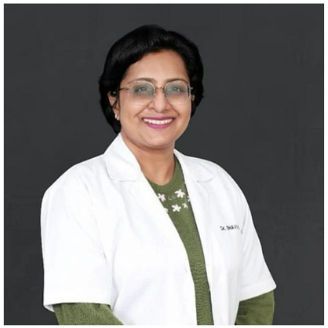Versicolor Overview: Treatment, Symptoms, Causes
Know about the versicolor, symptoms, causes, diagnosis, treatment options and when to see a doctor and more.

Written by Dr. Rohinipriyanka Pondugula
Reviewed by Dr. J T Hema Pratima MBBS
Last updated on 21st Aug, 2025

Introduction
If you’ve noticed patchy, discoloured spots on your skin, you might be dealing with a common condition called versicolor (also known as tinea versicolor or pityriasis versicolor). While it’s not harmful or contagious, it can be bothersome and affect your confidence. The good news? It’s treatable and manageable with the right care.
In this article, we’ll break down everything you need to know about versicolor—its symptoms, causes, and treatment options—in simple, easy-to-understand terms.
What Is Versicolor?
Versicolor is a fungal skin infection caused by an overgrowth of yeast called Malassezia, which naturally lives on our skin. When this yeast grows excessively, it leads to uneven skin pigmentation, causing patches that may be lighter or darker than your normal skin tone.
This condition is most common in warm, humid climates and often affects teenagers and young adults, though anyone can develop it.
Consult a Dermatologist for Personalised Advice
Symptoms of Versicolor
The most noticeable sign of versicolor is discoloured patches on the skin. These patches can appear:
- Lighter or darker than your natural skin tone (often white, pink, tan, or brown)
- Dry, scaly, or slightly itchy (though not always)
- More visible after sun exposure (since the affected areas don’t tan like normal skin)
- Commonly found on the chest, back, shoulders, neck, and upper arms
These patches may merge into larger areas and can sometimes be mistaken for other skin conditions like vitiligo or eczema.
What Causes Versicolor?
The yeast Malassezia is naturally present on everyone’s skin, but certain factors can trigger its overgrowth, leading to versicolor:
1. Hot and Humid Weather – Sweating and moisture create an ideal environment for yeast growth.
2. Oily Skin – Excess oil can feed the yeast, making it multiply faster.
3. Weakened Immune System – People with conditions like diabetes or HIV may be more prone to infections.
4. Hormonal Changes – Teenagers and pregnant women often experience flare-ups due to hormonal shifts.
5. Tight or Synthetic Clothing – Poor air circulation can trap sweat and promote fungal growth.
While versicolor isn’t contagious, it can recur, especially in warm climates.
How Is Versicolor Diagnosed?
A doctor can usually diagnose versicolor by examining the affected skin. In some cases, they might:
- Use a Wood’s lamp (a special UV light) to see the patches more clearly.
- Take a skin scraping to examine under a microscope.
If you suspect you have versicolor, you can consult a dermatologist through Apollo 24|7 for a quick and accurate diagnosis.
Treatment Options for Versicolor
Versicolor is treatable. Depending on the severity, your doctor may recommend:
1. Topical (Skin) Treatments
- Antifungal creams, lotions, or shampoos (e.g., clotrimazole, ketoconazole, selenium sulfide)
- Applied directly to the affected areas for a few weeks.
2. Oral Medications
- If the infection is widespread, your doctor may prescribe oral antifungal pills (like fluconazole or itraconazole).
3. Medicated Washes
Using antifungal shampoos (like those containing selenium sulfide or ketoconazole) as a body wash can help prevent recurrence.
4. Home Care & Prevention
- Wear loose, breathable clothing (cotton is best).
- Shower immediately after sweating to reduce yeast buildup.
- Avoid excessive sun exposure, as patches may become more noticeable.
- Use sunscreen to prevent uneven tanning.
It may take weeks or months for the skin to return to its normal colour, even after the infection clears.
When to See a Doctor?
Most cases of versicolor can be managed with over-the-counter treatments, but you should see a doctor if:
- The patches spread or worsen despite treatment.
- The itching or discomfort becomes severe.
- You have a weakened immune system.
Final Thoughts
Versicolor is a common, harmless fungal infection that can be easily treated with the right care. While it may take time for your skin to fully recover, following medical advice and preventive measures can help keep it under control.
Consult a Dermatologist for Personalised Advice
Consult a Dermatologist for Personalised Advice

Dr. S Madhuri
Dermatologist
10 Years • MBBS, MD. DVL, DNB, Fellow (Dermatosurgery & Lasers)
Secunderabad
Apollo Hospitals Secunderabad, Secunderabad
(300+ Patients)

Dr. Bhavya Swarnkar
Dermatologist
14 Years • MBBS, MD, DNB (Dermatology, Venereology & Leprosy) Former Senior Resident, Department of Dermatology- AIIMS, New Delhi. Associate Consultant - Dermatology.
Bilaspur
Apollo Hospitals Seepat Road, Bilaspur
(225+ Patients)

Dr. Somshukla Ray
Dermatologist
10 Years • MBBS, MD (Dermatology,Venerology & Leprosy), DNB (Dermatology,Venerology & Leprosy)
Kolkata
MCR SUPER SPECIALITY POLY CLINIC & PATHOLOGY, Kolkata
(25+ Patients)

Dr. Bhavyashree U G
Dermatologist
14 Years • MBBS, MD Dermatology, Venereology & Leprosy
Bengaluru
Bhavyas skin and hair center, Bengaluru
Dr. Gauri Padmawar
Dermatologist
9 Years • MBBS, DDV, Certificate in Aesthetic
Pune
Dr. Aniruddha's advance ortho and polyclinic, Pune
Consult a Dermatologist for Personalised Advice

Dr. S Madhuri
Dermatologist
10 Years • MBBS, MD. DVL, DNB, Fellow (Dermatosurgery & Lasers)
Secunderabad
Apollo Hospitals Secunderabad, Secunderabad
(300+ Patients)

Dr. Bhavya Swarnkar
Dermatologist
14 Years • MBBS, MD, DNB (Dermatology, Venereology & Leprosy) Former Senior Resident, Department of Dermatology- AIIMS, New Delhi. Associate Consultant - Dermatology.
Bilaspur
Apollo Hospitals Seepat Road, Bilaspur
(225+ Patients)

Dr. Somshukla Ray
Dermatologist
10 Years • MBBS, MD (Dermatology,Venerology & Leprosy), DNB (Dermatology,Venerology & Leprosy)
Kolkata
MCR SUPER SPECIALITY POLY CLINIC & PATHOLOGY, Kolkata
(25+ Patients)

Dr. Bhavyashree U G
Dermatologist
14 Years • MBBS, MD Dermatology, Venereology & Leprosy
Bengaluru
Bhavyas skin and hair center, Bengaluru
Dr. Gauri Padmawar
Dermatologist
9 Years • MBBS, DDV, Certificate in Aesthetic
Pune
Dr. Aniruddha's advance ortho and polyclinic, Pune

